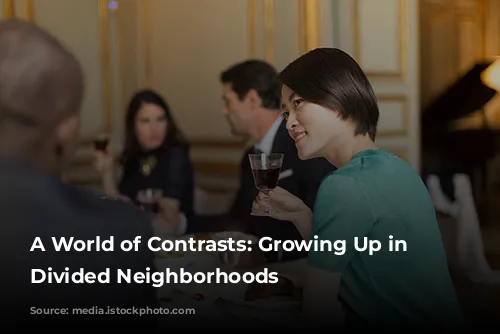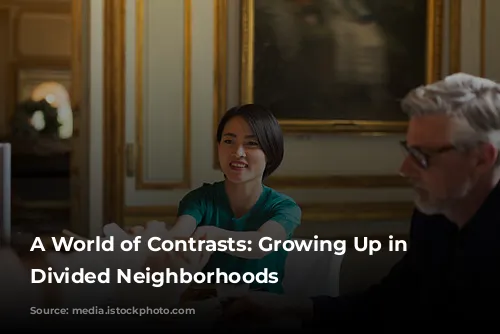Imagine a city split into two distinct worlds, each with its own rhythm and identity. This was my reality growing up in Detroit, a city where Chinatown and the gay community existed side by side, yet remained worlds apart.

Chinatown: A Bachelor Society
Detroit’s Chinatown was a haven for elderly men, most of whom worked grueling jobs in the city’s food service industry. They struggled with their English, and their days were filled with the demanding routines of waiting tables and preparing food.
After long shifts, these men would find solace in the dimly lit gambling den beneath my family’s restaurant. The air buzzed with the raucous sounds of Cantonese swearing and the clatter of dominoes and mah-jongg tiles. Occasionally, they would emerge to satisfy their cravings with our homemade cabbage egg rolls or, if their luck was good, indulge in a luxurious jumbo shrimp cocktail.
The disproportionate number of men in Chinatown was a mystery to me until my parents explained the sad reality of America’s immigration policies. For decades, Chinese women were barred from entering the country, a cruel policy rooted in the unfounded fear of a “yellow” takeover. While the U.S. attempted to rectify this injustice starting in the 1940s, the gender imbalance persisted in cities like Detroit well into the 1980s.
These men, seeking a sense of belonging and camaraderie, formed a close-knit community within the confines of Chinatown. They found solace and support in the tong, an organization responsible for the safety and well-being of the Chinese community, but also associated with organized crime. Despite their reputation, these men felt more like harmless, grumpy uncles to me.

The Gayborhood: A World of Style and Glamour
Just outside the borders of Chinatown, a vibrant and colorful world unfolded – Detroit’s gay community. These men, unlike their counterparts in Chinatown, faced no legal barriers to being with women. Their lives were defined by a different kind of freedom – the freedom to embrace their true selves, and to find love and acceptance within their own community.
They were a stylish lot, with impeccably groomed haircuts, toned physiques, and Burt Reynolds mustaches. They owned businesses unlike anything I’d seen in Chinatown: a pet store, a dog-grooming salon, and an antique shop overflowing with vintage Life magazines. One of their most intriguing establishments was a bar featuring “female impersonators” – a concept that was both perplexing and fascinating to my young mind.
A Boy Between Two Worlds
As a curious 12-year-old, I often snuck away to Birdtown, the colorful pet store in the gayborhood. I would stand amidst the rows of blue-tinted lights, mesmerized by the shimmering angelfish and swordtails, listening intently to the conversations of the pet shop boys, their voices punctuated by the rustle of Hollywood gossip magazines.
At that young age, I instinctively understood that a part of me belonged to each of these groups of men. But I also knew that I had to keep these worlds separate. While neither community openly disparaged the other – no one in Chinatown made homophobic remarks, and no one in the gayborhood said anything anti-Asian – the pervasive bigotry I witnessed at school made me hesitant to bridge the gap.
I felt at home in both worlds, yet I was afraid of the consequences of their collision.
A Feast for VIPs
One evening, Chung’s welcomed a distinguished group of visitors: elderly men in ill-fitting suits, representing the Boston chapter of the tong. My grandfather, the head of the Detroit chapter, was responsible for hosting these out-of-town dignitaries.
Our head chef, in honor of their arrival, prepared a special feast, a departure from our usual Americanized chop suey fare. The tables were laden with delicacies such as crunchy, succulent gai lan and the fishy, salt-infused hom yu. It was a night of culinary celebration, showcasing the richness of Chinese cuisine.
Growing up in Detroit’s divided neighborhoods, I learned about the power of acceptance and the importance of finding your own place in a complex world. While Chinatown and the gayborhood remained separate entities, the experiences I had in both taught me the value of embracing diversity and challenging the boundaries that divide us.
